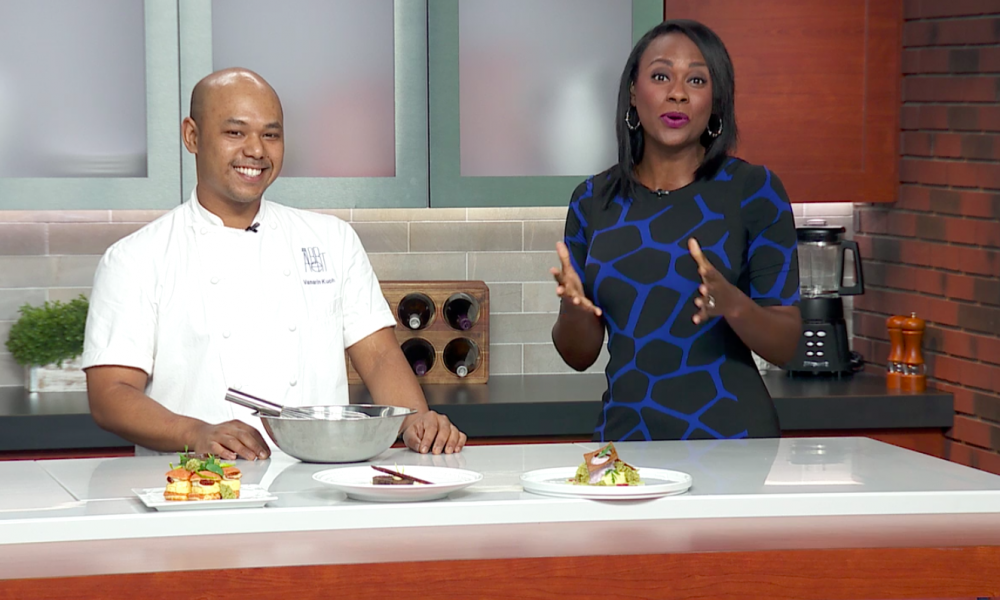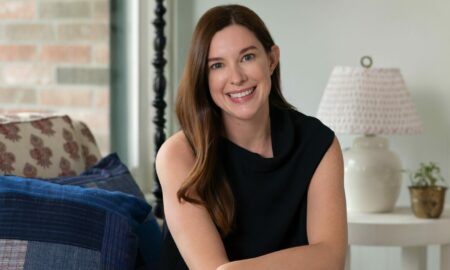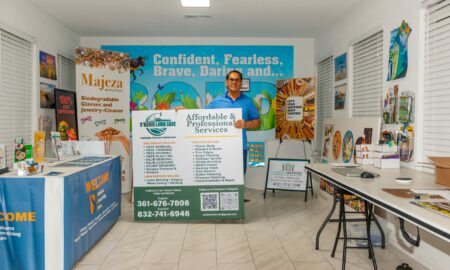

Today we’d like to introduce you to Vanarin Kuch.
Vanarin, can you briefly walk us through your story – how you started and how you got to where you are today.
I am a first-generation Cambodian-American, a descendant of refugees from a war-torn country. My parents are survivors of the concentration camps in Cambodia, and I will never forget how I got here, and what that range of experience means. In my life, food has always illuminated a diverse set of experiences, from eating American food to fit in, to family members opening doughnut shops to start their American dream, to neighbors calling the police to report a “decomposing smell” when we were making prahok (the base to all authentic Cambodian dishes). All of these experiences have culminated in Koffeteria.
My parents divorced when I was five, and I bounced between five different elementary schools. My mother always worked two full time jobs, while my biological father was an avid gambler, and we never knew how much money was coming or going in the house. I remember my first day of school, I was excited to learn English, and even more excited to have an American school lunch. The glory of being able to choose options in the lunchroom: did I want chicken nuggets or a hamburger? And in Houston you can get chili and cheese on everything! I noticed there was a line, and the other kids were presenting something to a woman at the end of the line. What was it? Was it a pass for food, or was she inspecting our trays to make sure we had maximized our vegetal intake? When I arrived, she looked at me with fish-cold eyes and said, “That’ll be $1.60.” I looked at her with confusion and said,”Food?” She immediately grabbed my tray and stuck it behind the counter. I left the line without any food. Sitting there alone, in a new school, and with no food, I also noticed the other children staring, but they avoided sitting with me. But eventually, a custodian brought over an uneaten apple and half a sandwich from the trash can, which I ate with delight. That was the first time I had experienced social and economic discrimination, and that lesson has stayed with me to this day. The food at school was not the connection to American culture that I had hoped for: it was there to make money. For many years, food remained stigmatized for me.
I got my first cooking job in Spring, Texas, at the White Flamingo. I remember spending hours making hulu dancers out of strawberries, pecans, and green onions (for the skirt) because I wanted to make a cheesecake to look better. I eventually got a line cook position working for my first renowned chef, Jean-Georges Vongerichten, at Bank Jean-Georges in downtown Houston. This was the first time I had ever done food on such a fine dining scale, and it was exciting and intimidating at the same time. After graduating from culinary school, I was selected as part of the opening team at Hotel Zaza, and that is where I eventually transitioned into pastry. Through a former co-worker, I was tipped onto a new opportunity at Tiny Boxwoods. They had just expanded into dinner service and were looking for a fresh face to helm their pastry program. This was the springboard to my career; by the time I left four years later, we had opened Tiny’s No.5, and I had won Rising Star Pastry Chef from Starchefs.com, been nominated for Best New Pastry Chef for Food&Wine Magazine, and had competed on Top Chef: Just Desserts.
I was at the top of my game in Houston but felt unsatisfied as a self-taught pastry chef. I moved to New York City and became the pastry sous at the iconic Gotham Bar and Grill. My time there was intense; I was plating desserts for 150 people every night. From there, it was on to Boulud Sud, which was even more intense. Living and working in New York at some of the best restaurants honed my pastry skills, and showed me the intensity of vision needed to achieve at the highest level. Most importantly, I learned a lot about myself and met my husband. When we relocated for his graduate school in the Midwest, I pursued a career in Chicago as the opening pastry chef at the Albert at Hotel EMC2, a concept about the merging of science and food.
Koffeteria is the culmination of all these travels and experiences. I needed to leave Houston to learn more and expand my vision. Now I’ve come home, hoping to give back to the community that has given me so much love and support. The name is inspired by the Washateria my grandmother owned on West Gray, with a nod to the mid-century decor. At Koffeteria, you’ll find whimsical plays on pastries, unique flavors of ice creams & sorbets, and delicious coffee. When they walk inside, I want people to feel welcomed into my family.
Has it been a smooth road?
I don’t think anythings been a smooth road for me, but luckily I love chunky peanut butter so that’s prepared me for a lot bumps along the way. I have always been the one to accept failure as a teachable moment, and truly believe we need to fail in order to succeed. From dealing with diva chefs and homelessness, it’s the struggles that fill in the foundations of success; making it strong enough to eventually sustain something worth being proud of.
So let’s switch gears a bit and go into the Koffeteria LLC story. Tell us more about the business.
Koffeteria is an extension of my hospitality and gratitude towards the Houston community. We strive to serve unique and delicious pastries just a few points shy of genius. We want to keep things exciting and playful while introducing different techniques and flavors not normally done in a traditional bakery; but also offering some technical classics as well. I am the pastry cook/owner.
How do you think the industry will change over the next decade?
I believe there will always be shops chasing that next trend, but a true brand is something all on its own. I think shops will open up to represent the cooks and not necessarily a concept. I think a late night pastry scene has been on the rise for the past few years. And unfortunately, Houston might hit that ceiling of too many restaurants and not enough cooks. I have seen this happen to a few cities. But, like any lull, Houston always perseveres through it. I hope there is a shift in the importance of seasonality and quality of produce. One thing I missed from Chicago and New York was the understood connection from farmer to restaurant.
Contact Info:
- Address: 1110 Hutchins #102
Houston, Texas 77003 - Website: koffeteria.com
- Email: koffeteria@gmail.com
- Instagram: Koffeteria
- Facebook: Koffeteria







 Image Credit:
Image Credit:
Jessica Marrs
Suggest a story: VoyageHouston is built on recommendations from the community; it’s how we uncover hidden gems, so if you or someone you know deserves recognition please let us know here.

















